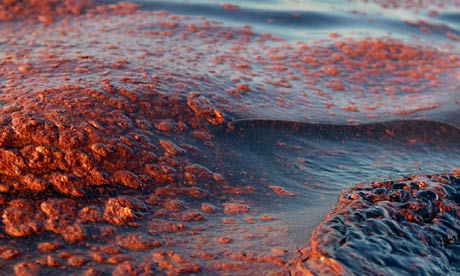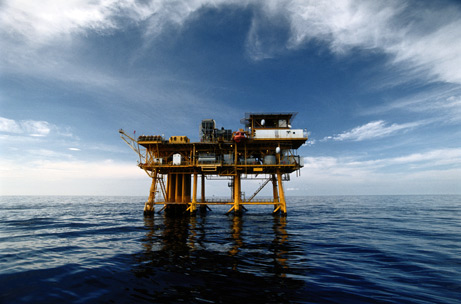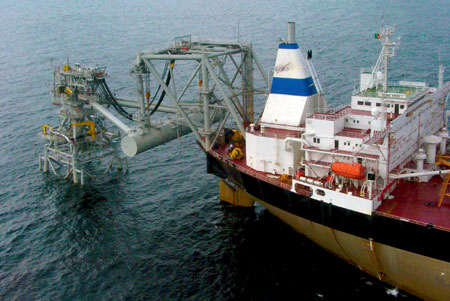The Yes Men Inspire Nigerian Activists
The Yes Lab has helped Nigerian activists pull off a successful hoax. Here’s the story:
Shell Flummoxed by Fakers
Company flummoxes back; activist group takes responsibility
The Hague – Hours before Shell’s annual general shareholder meeting on Tuesday, and not long after BP’s oil rig catastrophe, millions of people around the world received press releases announcing that Shell would implement a “comprehensive remediation plan” for the oil-soaked Niger Delta. The plan included an immediate halt to dangerous offshore drilling, the end of health-damaging gas flaring, and reparations for the human damage caused over the decades of Shell’s involvement.
The “good news” was fiction, created by an ad-hoc activist group called the Nigerian Justice League to generate pressure on Shell to withdraw from, and remediate, the Niger Delta. According to the activists, Shell’s operations in the Delta have helped transform that area into the world’s most polluted ecosystem, which has in turn resulted in a human rights catastrophe.
(The NJL developed the project as part of the Yes Lab, a workshop run by a group called “The Yes Men” to share their experiences and facilitate the projects of others. The Yes Lab is in the midst of a fundraising drive.)
“Shell, Chevron, and the others are perpetrating a massive, life-threatening hoax by claiming that they can’t quickly stop their gas flaring, reduce their oil spills, and clean up their mess in the Niger Delta,” said Chris Francis of the Nigerian Justice League. “Our press release revealed the truth: that there is a decent way forward, instead of the continual deceit we get from them.”
Shell’s public relations staff quickly and energetically moved to contain the fallout from the fake release. On Tuesday, Shell attempted to eliminate the Justice League’s spoof Shell website by complaining that it was a “phishing scheme” to the upstream internet service provider. Shell then sent a threatening legal letter to the Danish internet provider hosting the site.
In a related story, the Financial Times (a blog of which, incidentally, was duped by the fake release) refused to run a hard-hitting advertisement, created and paid for by Amnesty International, that called for action against Shell for its Niger Delta legacy. Like the fake release, the ad was timed to coincide with Shell’s May 18 AGM.
“For now, Shell’s legal threats are bearing ripe fruit,” said Esmée de la Parra of the Nigerian Justice League. “But they can’t keep blustering their way to destruction forever. Eventually, people will have had enough. For the sake of the planet, let’s hope ‘eventually’ is very soon.”
Self regulating?
Here’s a worrisome bit of reporting from the New York Times: “Regulator Lets the Industry Call the Shots on Safety.” Eric Lipton and John Broder report that the Minerals Management Service and the Interior Department never took the actions necessary to impose backup systems to control the giant undersea valves known as blowout preventers. This despite numerous spills and repeated warnings about the necessity of such measures over more than a decade.
The article continues with a list of oversights, safety violations and government passes for the industry. Again, I wonder about Africa. Who is regulating drilling operations and enforcing those regulations in West-Central Africa?
Deepwater Drilling
I just came across this highly informative post, “Deepwater Drilling — What Can go Wrong?” on the Ghanaian blog, CROSSED CROCODILES.
Check it out. The unfolding disaster in the Gulf of Mexico is indeed a cautionary tale for Africa. Angola, Equatorial Guinea, Gabon, Cameroon, Nigeria, Ghana… deepwater drilling is happening or on the horizon in a number of countries.
Despite the massive efforts of the oil companies and state and federal authorities, the situation in the Gulf of Mexico is spinning out of control. The thought of a similar accident occurring off the coast of West or Central Africa is terrifying.
Oil Spill near Kribi, Cameroon
A new oil spill was reported at the marine loading terminal offshore from Kribi at 1:45 am on April 22nd.
According to COTCO, the “minor spill” occurred during a violent storm. The transfer of oil from the loading terminal (FSO) to a waiting tanker was halted due to bad weather. High waves washed some “residual oil” from the deck of the waiting tanker. Again, according to COTCO, less than five barrels total were spilled and the oil was immediately cleaned up.
No oil has been reported on the coast, but fishermen did report seeing a sheen of oil offshore.
Several Cameroonian NGOs have released a statement deploring the lack of communication between COTCO and the local populations as well as the lack of any statement or information from the Cameroonian government. The Comité de Pilotage et de Suivi des Pipelines (CPSP), the Cameroonian authority responsible for the pipeline, has not made any public comments regarding the spill. With no information from the government and no journalists allowed near the marine loading terminal, it is extremely difficult to verify COTCO’s information.
In November 2009 the Cameroonian government adopted a national oil spill response plan. This plan, required by the World Bank, should have been in place before oil began to flow along the pipeline in October 2003. The Cameroonian government has not made the plan public and many civil society activists believe the plan remains non-operational. Samuel Nguiffo, from the Center for the Environment and Development, points to the unfolding disaster in the Gulf of Mexico as a warning: “It is urgent that the government increase its capacity to respond to a disaster and make the oil spill response plan operational.”
In the event of a major spill, several million barrels of oil could end up in the Atlantic ocean 12 km. off the coast of Kribi, Cameroon’s main tourist destination and an important fishing and sea turtle nesting zone. The thought of a spill anywhere is terrifying, but watching what’s going on in the Gulf of Mexico now makes me extremely uneasy about Cameroon. Of course the situation in the Gulf is particular, but one clearly sees that controlling an oil spill, even with the best equipment and ample manpower, is incredibly difficult. Any significant spill at the marine loading terminal in Kribi would likely be an ecological (and economic) disaster of major proportions.
It’s important to remember that the offshore marine loading terminal at Kribi (the FSO), is a single-hulled refurbished tanker. Today all tankers, including those used as FSOs, must be double-hulled — an additional protection against spills.
Missing Fish
Fishing in Kribi isn’t what it used to be. There are certainly multiple reasons for the decline in fish stock, but everyone here singles out the pipeline as the main culprit. The pipeline cuts right through the middle of the coastal village of Bume, just south of Kribi, on its way to the marine loading terminal 12 kilometers offshore. The residents of Bumé, who depend entirely on fishing, blame the pipeline for killing their livelihood.
There are two types of fishing in the Kribi area and the pipeline impacted each differently. The hardest hit are the small, village fisherman — like the residents of Bumé — who put their nets out just offshore. These fishermen do not have motor power; they paddle their small dugout canoes out to sea and are unable work more than a few kilometers from shore.
They used to catch the fish that lived in the reef just offshore. That reef was blasted away during pipeline construction and the fish have never come back. Using their traditional fishing methods, local fishermen now pull in only a few kilos of fish at a time. Sometimes, they pull in nothing at all.
As I mentioned in an earlier post, the initial pipeline plans did not include the destruction of the reef. As no one from ExxonMobil would speak to me, I could not find out why this, a significant environmental impact, was not not part of any early reviews. The shallow waters of the coast here are lined with rocky offshore reefs and the Bumé reef was clearly visible. If any local fishermen had been interviewed, they would have talked about the importance of the reef for local fishing.








